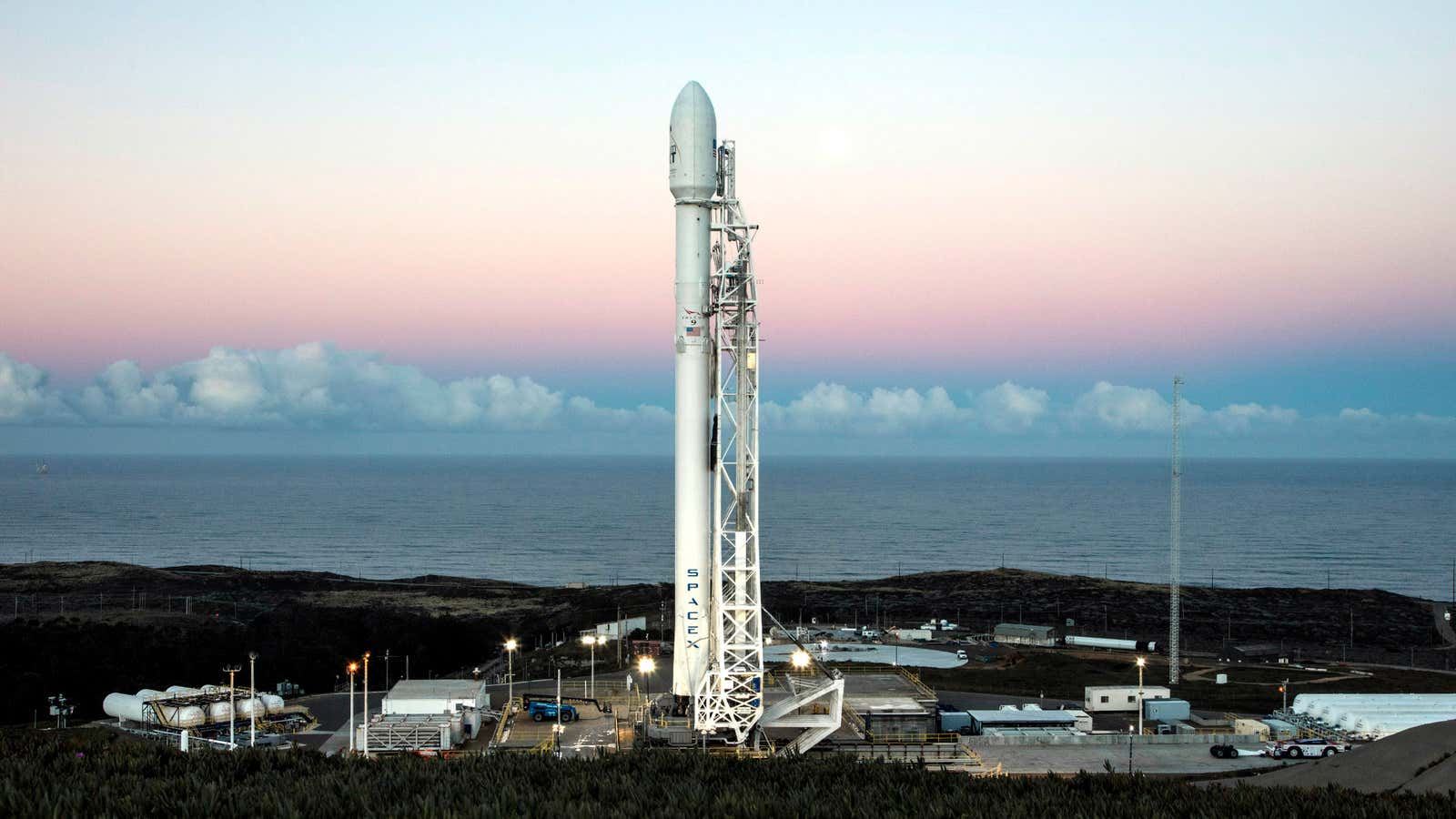SpaceX will reuse a rocket booster today to continue a globe-spanning technology upgrade in space, and also launch a pair of satellites to precisely measure shifts in the earth’s mass.
The Falcon 9 rocket is expected to lift off from California’s Vandenberg Air Force Base at 3:47 pm ET (12:47 pm PT). If there are any delays ahead of the launch, there will be another opportunity tomorrow, May 23 at 3:24 pm ET (12:42 pm PT). Viewers will be able to watch the lift off and separation of the satellites, but SpaceX will not be recovering this older booster as it shifts its focus to the final version of its workhorse rocket.
Check out the company’s livestream here:
What’s on the rocket?
Two major payloads are going into orbit today.
One is a set of five Iridium communications satellites, the sixth mission that SpaceX has launched for the satellite operator as it replaces its entire fleet of spacecraft with 75 new models. Billing it as one of the largest tech upgrades in history, CEO Matt Desch told investors last month that the majority of his network’s traffic is now running on the 50 new satellites SpaceX has launched since January 2017. Desch expects the rest of the satellites to go up this year, “completing our Iridium NEXT constellation and starting on a well deserved [capital expenditures] holiday.”
The other is a pair of satellites called Gravity Recovery and Climate Experiment Follow-On, or GRACE-FO, which is a collaboration of NASA and the German Research Centre for Geosciences. One satellite follows the other in orbit around the earth, and both are loaded with carefully-calibrated instruments. Minor differences in earth’s gravity, mostly caused by water moving across the globe, will affect the orbit of the lead satellite ahead of its companion, allowing scientists to pin down changes in mass below below. This data is critical to understanding earth’s water system and climate.
How’s business at SpaceX?
This is SpaceX’s ninth Falcon 9 launch of 2018, and 10th launch including the debut of their Falcon Heavy, which puts the company well on pace to beat its 2017 record of 18 launches. It will also mark the eleventh time the company has re-used its first stage rocket boosters, including the two that were part of the Falcon Heavy.
In the eyes of CEO Elon Musk, reusability is the key to lowering the cost of access to space enough to enable economic activity and exploration. Since the company developed the Falcon 9 and it began flying commercial missions in 2013, SpaceX has come to dominate the launch market:
As launches are becoming more routine, the technology is helping justify SpaceX’s $23 billion valuation, and fund the development of human-rated spacecraft, as well as a huge new rocket to explore the solar system.
